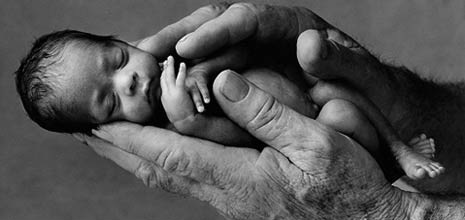|
By Misty Kay My husband Daniel and I live with our four children on the 13th floor of an apartment building in Taichung City, Taiwan. Needless to say, the elevator is a part of our daily lives. It had been just another normal, busy day, with most of my time and energy spent keeping the kids happy, fed, and out of one another’s hair. We had all been out together, doing what I don’t even remember, and were coming home. We stepped into the empty elevator, and one of the kids pressed the button. The number 13 lit up on the panel, and the doors closed. “Children, your mother and I have an important announcement,” Daniel said in a way that commanded everyone’s attention. I had no idea what this was about. Daniel is a spontaneous man, full of surprises, and I never know what to expect from him. In a quick impulse I decided to play along. I moved next to him and put my arm in his to add authority to whatever he was going to say. “Your mother and I want you to know that after fourteen years of marriage, we are still totally and emphatically in love.” Then he turned and kissed me like a bride. Wow! I hadn’t seen that coming. The kids laughed a little and asked, “Why is that an important announcement?” Daniel replied that with so many marriage problems in the world and divorce so common, children need to know that their parents love each other. Then he looked our son in the eye and said, “When you get married someday, you need to treat your wife right.” A loud ding announced the thirteenth floor, and the elevator doors opened. When we walked into our apartment, the kids’ chatter was punctuated by little giggles, and Daniel and I slipped into our room to enjoy a private moment together. In 36 seconds between the first and thirteenth floors, Daniel had brought our family closer, put smiles on our faces, taught our son a life lesson, and put warmth in my heart that filled my whole being. Courtesy of Activated Magazine. Used with permission.
0 Comments
A Reflection for Parents By Jesus, speaking in prophecy Think about My beautiful gifts of love to you in the form of the children I have blessed you with. Each one is so precious to you, so dear to your heart. Their well-being, happiness and growth are so important to you. They’re also extremely important to Me, for they are also My sons and daughters. Think about My concern and care for them, and the way I manifest this to you and to them—through times of happiness, laughter, blessings, and fun; times of learning and experience and change and times that challenge their hearts and minds. Think about My promises to care for My own—and your children are My own. Think about My perfect love and understanding of all their needs and desires, both now and in the future. Meditate on My ability to care for them, no matter what their circumstances. *** In the Bible I said, “Are not five sparrows sold for two copper coins? And not one of them is forgotten before God. But the very hairs of your head are all numbered. Do not fear therefore; you are of more value than many sparrows.” (Luke 12:6,7) I’m very concerned about every detail, and when it comes to the care of your children, I am concerned and moved to care for them. “Look at the birds of the air, for they neither sow nor reap nor gather into barns; yet your heavenly Father feeds them. Are you not of more value than they?” (Matthew 6:26) And if I and My Father know of and care for every sparrow, doesn’t it stand to reason that I would be concerned and care for you and your children?—For they are My children too. A sparrow is a tiny bird, and My children are worth more to Me than all the sparrows in the world. © The Family International. The finest gift you can give anyone is encouragement. Yet, almost no one gets the encouragement they need to grow to their full potential. If everyone received the encouragement they need to grow, the genius in most everyone would blossom and the world would produce abundance beyond our wildest dreams.--Sidney Madwed
* Too often we underestimate the power of a touch, a smile, a kind word, a listening ear, an honest compliment, or the smallest act of caring, all of which have the potential to turn a life around.--Dr. Leo Buscaglia * Charles Schwab, the successful businessman, said, "I have yet to find the man, however exalted his station, who did not do better work and put forth greater effort under a spirit of approval than under a spirit of criticism." Everyone wants and needs to be affirmed for his accomplishments. A little boy playing darts with his father said, "Let's play darts. I'll throw and you say 'Wonderful!'" That's what the encouraging person does for others. We tend to become what the most important person in our life thinks we will become. Think the best, believe the best, and express the best in your children. Your affirmation will not only make you more attractive to them, but you will help play an important part in their personal development. —John C. Maxwell (excerpted from the bookBe a People Person: Effective Leadership Through Effective Relationships) * The movie "Stand and Deliver," tells the true story of Jaime Escalante, an immigrant from Bolivia who taught at Garfield High School in inner-city Los Angeles. He accomplished remarkable results with students known to be especially difficult to teach. One story not depicted in the movie was the one about "the other Johnny." Escalante had two students named Johnny in his class. One was a straight A+ student; the other was an F+ student. The A+ student was easy to get along with, cooperated with teachers, worked hard, and was popular with his peers. The F+ Johnny was sullen, angry, uncooperative, disruptive, and in general was not popular with anyone. One evening at a PTA meeting, an excited mother approached Escalante and asked, "How is my Johnny doing?" Escalante figured that the F+ Johnny's mother would not be asking such a question, so he described in glowing terms the A+ Johnny, saying he was a wonderful student, popular with his class, cooperative and a hard worker, and would undoubtedly go far in life. The next morning, Johnny—the F+ one—approached Escalante and said, "I really appreciate what you said to my mother about me, and I just want you to know that I'm going to work real hard to make what you said the truth." By the end of that grade period, he was a C- student, and by the end of the school year, he was on the honor roll. If we treat our children as if they were "the other Johnny," chances are dramatically better that they will, in fact, improve their performance. Someone rightly said that more people have been encouraged to succeed than have been nagged to succeed. This example makes us wonder what would happen to all the "other Johnnies" of the world if someone said something really nice about them. —Zig Ziglar The “Do’s”
The "Don't's"
Tina Kapp
Some of my earliest memories are of riding on the back of a motorcycle, behind my mom. And it wasn't just for a spin around the block. We were a missionary family and lived in countries where motorcycles were often the most practical or affordable means of transportation. (I grew up in Hong Kong, Thailand, Indonesia, the Philippines, Malaysia, Macau, and Singapore.) But that wasn't the only unusual or outstanding thing about Mom. She always made a point to learn and fit into the local culture as much as she could, and she loved to communicate with people in their own language. She was also an expert at organizing fun, educational outings for us kids, and encouraged us to try local foods, sports, and ways of doing things. I moved to Uganda as a young adult, and after a while Mom joined me. It was wonderful to see how quickly and well she adapted to Africa after having lived in Japan for many years. As always, she was eager to learn new things, studying various local dialects and learning all she could about the Ugandan culture. It wasn't long before she was greeting sellers at the street market in their own vernaculars. She got to know all of our Ugandan neighbors, right down to details of their children's education and interests, and she never hesitated to help a friend or stranger in need. She also hadn't lost her fun-loving, slightly reckless side. On one of her days off, she could be found riding her dirt bike to Lake Victoria, renting motorbikes for others of us to learn to ride, or her favorite—kayaking down the Nile. The best moms, I've found, aren't necessarily perfect cooks or housekeepers, but they love their children completely and in their own way. They also set an example by living what they teach, and aren't afraid to let their children try new things and be themselves. And while they're at it, they enjoy life to the full. Powerpoint dedicated to all mothers. Happy Mother's Day! Good communication with almost anyone--your husband or wife, boss, coworkers, children, parents, or friends--depends on a few basic principles of people handling. Learn these, and you will be well on the way to happy, productive relationships. Honesty. Good communication is built on mutual respect, and respect depends on honesty. Tact. It's important to be honest, but it's also important to be loving and considerate in your presentation, especially when the subject could be sensitive. Wisdom. Wisdom is what helps you be tactful. Love. When children feel loved or cared for, it puts everything else in proper perspective. You may not do or say everything right, but if your kids see that you are motivated by love, little problems or misunderstandings won't become big ones. Positiveness. Being upbeat usually elicits a positive response. Encouragement and sincere compliments are always appreciated. Timing. Knowing when to say something is often as important as knowing what to say. "A wise man's heart discerns both time and judgment" (Ecclesiastes 8:5). Sensitivity. It's not good to be so sensitive to your own needs that your feelings are easily hurt, but it is good to be sensitive to your children’s likes and dislikes, needs, and moods. Open-Mindedness. People's opinions and the way they approach problems are as different as the people themselves. Turning off your thoughts and being quiet long enough to let your children express their feelings conveys respect and fosters positive, fruitful exchanges. Your children will be much more at ease with you and more likely to turn to you for advice if they know you will be open to what they have to say, even if you don't agree. Empathy. Put yourself in the your child’s position and try to understand the feelings that are behind what he or she is saying. Patience. It's sometimes hard to listen to what children have to say without interrupting, trying to hurry them along, or finishing their sentences for them, but it's a way of showing love and respect, which pay off. A Sense of Humor. A little laughter can be just the thing to keep potentially difficult exchanges from getting too intense. Lighten up! Approachability. The dictionary defines approachability as "invitingly friendly; easy to talk to." Clarity. There would be a lot fewer misunderstandings between people if they didn't beat around the bush or rely so much on hints. Don't leave your kids guessing; say what you mean. If you're not sure they understand your point, ask them. Effort. Sometimes communicating is plain hard work--but the rewards are worth it! Consistency. Parents and children who communicate regularly understand each other better and are more likely to be able to work through problems when they come up. Original article courtesy of Activated magazine. Used with permission.  The simplicity of the experiment at the day-care center and the starkness of the results stunned the parents. When a class of two- to five-year-olds watched public television’s big-hearted purple dinosaur, “Barney,” they sang along, marched along, held one another’s hands, and laughed together. The next day, the same class watched the aggressive teenage avengers, “Power Rangers.” Within minutes, they were karate-chopping and high-kicking the air—and one another. “Even though the goal of these programs isn’t to teach, our kids are learning because they’re always learning,” says David Walsh of the National Institute on Media and the Family, who conducted the experiment. According to the National Television Violence Study, prime-time violence, on both broadcast and cable networks, has increased since 1994. The study also concluded that the way violence is portrayed in most instances—glamorized, sanitized, and without negative consequences—poses a serious risk to children. “These patterns teach children that violence is desirable, necessary, and painless,” says Dale Kunkel of the University of California at Santa Barbara, where the study was done. ***** Children imitate what they see and hear, and they seem to have a penchant for copying the negative. Young children, especially, can't always tell the difference between good or bad, and it's even harder when those guilty of some of the worst behavior are made to look so enviable, so "good," in other ways—good looking, affluent, popular, smarter than the adults, and free to do as they please. Children are in the process of forming the values that they will carry with them through life, and it's their parents' responsibility to guide that process. Parents are failing at that job if they let their children watch what they want without any parental guidance or explanation as to what is acceptable civil behavior and what isn't. And that goes for shows that are supposedly geared to children, even the ones that are meant to be educational. Just because a movie or TV show is rated for children doesn't necessarily mean that it's good for your children. Parents need to take personal responsibility for that decision. They also have a responsibility to steer their children away from the negative, either by not exposing their children to it in the first place, or by explaining why it's bad and not to be imitated. If you're a parent, you need to take a long, hard look at what's out there and decide if that's how you want your children to turn out, because what they watch and listen to and imitate today, they will become tomorrow. - D.B. Berg |
Categories
All
Archives
March 2024
LinksFree Children's Stories |







 RSS Feed
RSS Feed
